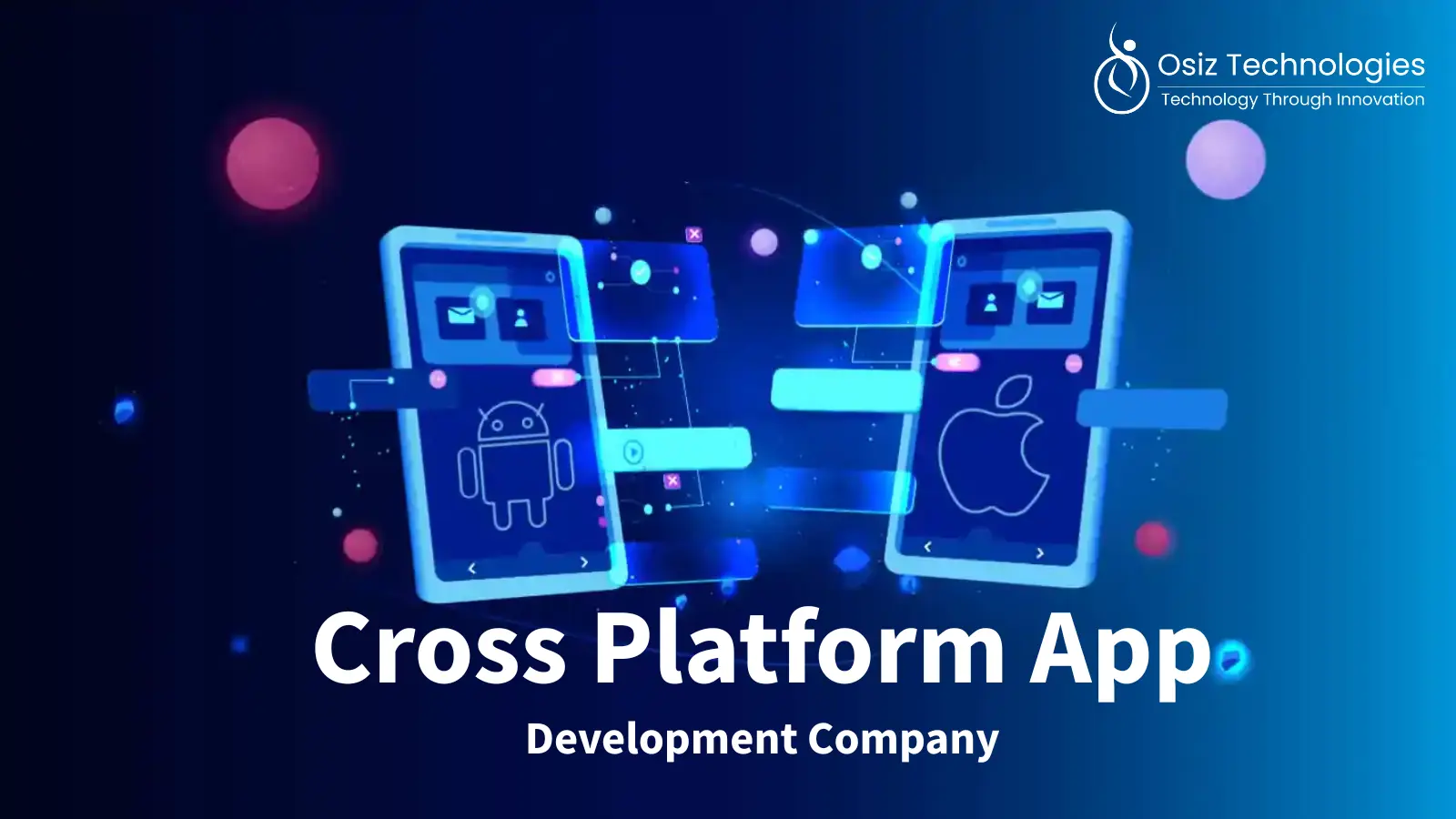With a mobile-first ecosystem, businesses can no longer be platform-focused. iOS, Android, or web apps, they expect seamless experiences across any device. But developing native apps for each one of them can be time-sapping, expensive, and resource-heavy.
Such is the reason why businesses are increasingly turning to cross-platform app development a shrewd, cost-effective approach to developing applications that perform nicely on different platforms from one codebase.
Cross-Platform
Cross-platform is a term used to describe the capability of software or technology to function across various computing platforms. This describes using a single codebase that can execute on several operating systems and/or hardware architectures, including Windows, macOS, iOS, and Android.
Why? Cross-platform development or multi-platform development has numerous benefits, the first one of which is cost saving, reduced time to market, and greater reach. It enables organizations to develop applications based on various platforms (e.g., web, iOS, Android) from a single code base and thus save cost and time. It gives a uniform experience on various devices and platforms, and that means improved interaction and bliss.
Cross-Platform App Development Company
Osiz Technologies is a top cross-platform app development firm with massive experience in developing high-performing apps capable of running natively on iOS, Android, and web platforms. Profoundly familiar with frameworks such as Flutter, React Native, and Xamarin, we assist businesses in saving time and money in the development process without sacrificing user experience and functionality.
Our development strategy is aimed at creating a single codebase with native-level performance and appearance on all devices. We employ agile methods, comprehensive testing, and UI/UX optimized for stable behavior on all platforms.
With the partnership of Osiz, customers receive scalable, cost-effective, and forward-thinking mobile applications that bring value with faster time-to-market and higher user engagement. Whether enterprise or startup, we assist you in shipping effective apps with reliable performance on every screen.
Cross-Platform App Development Company Services
Custom-Built Apps for All Platforms
We develop secure, scalable, and high-performance cross-platform applications that meet your business requirements. With the aid of technologies such as Flutter and React Native, we provide smooth performance on Android, iOS, and web. Our custom solutions cut down on development time and cost without shaving off quality.
UI/UX Design
Our design team designs user-centered, good-looking interfaces that feel smooth across devices. We emphasize consistency, intuitive navigation, and responsiveness to maximize user engagement. All the UI/UX elements are designed to be cross-platform compatible for both iOS and Android.
Integration and Migration
We assist businesses in migrating new functionality or transferring legacy applications to modern cross-platform applications. Our seamless integration provides third-party API, cloud service, and backend system integration. We update your apps without interfering with the existing workflows or data integrity.
Support and Maintenance
We provide post-deployment end-to-end services such as updates, bug fixes, and performance tracking. Our support team keeps your app secure, fast, and compatible with the latest OS versions. Routine maintenance improves app stability and user satisfaction in the long term.
Cross-Platform Strategy Consulting
Not yet convinced about what technology or method best fits your dreams? We offer strategic consulting for app planning and architecture. Our experts assist you in selecting the best frameworks, establishing timelines, and streamlining development budgets. We help your cross-platform venture begin well and develop with confidence.
Cross-Platform Apps: Benefits That Matter
Code Reusability
Cross-platform development allows you to develop a single codebase that will be executed in many platforms. This is time-saving and requires less duplicated effort.
Less Development Time
Developing one app for every device accelerates the development. It lets you bring your app to customers sooner.
Easy Maintenance & Update
You must maintain and support a single code base on all platforms. It is easy to fix bugs and introduce new functionality.
Cost-Saving
Having one app instead of separate apps saves developers and hours. It decreases the total project expenses.
Wider Audience Reach
Cross-platform apps are compatible with Android, iOS, web, etc. This enables you to reach a wider audience.
Unified User Experience
Cross-platform apps appear the same and feel the same across all platforms. This provides brand consistency and user familiarity.
Seamless Cloud & Third-party Services Integration
Cross-platform platforms offer simple integration with cloud services and APIs. This provides faster integration with features like notification and analytics.
Support for Popular Frameworks
Solid community backing and existing pieces in widely used systems such as Flutter and React Native cause things to run quicker and with fewer issues.
Common Obstacles
Performance Issues
Cross-platform apps may be slower than native apps since there are extra abstraction layers. This would affect computationally intensive or graphics-intensive apps.
Reduced Access to Device Features
Sometimes cross-platform platforms lack complete support for all the device features. This implies that functionality may be limited than native apps.
UI/UX Inconsistencies
It might be difficult to have an optimal look and feel on all platforms. Design guidelines differences would cause inconsistencies.
Larger App Size
Cross-platform apps are larger in size than native apps. This would impact download time and disk usage.
Dependency on Third-Party Tools
Heavy reliance on cross-platform frameworks involves relying on their update and maintenance. Delays or bugs in these tools can hamper development.
Limited Customization
Making certain platform-specific behaviors customizable can be more difficult. Some sophisticated features can only be implemented through native coding.
Debugging Complexity
Debugging may become more complex since bugs can be due to the common code or the platform-specific layers. This demands additional effort.
Security Concerns
Cross-platform platforms can provide security threats unless handled carefully. Native applications have more control over the device security features.
Overcoming Common Obstacles
Maximizing Performance and Functionality
- To reduce performance problems, native modules can be used for resource-intensive operations and profiling their app periodically to identify bottlenecks.
- When native features of the device are required, using plugins or small native code snippets maintains platform-wide functionality without giving up speed.
Enhancing User Experience and Controlling Size
- Adhering to each platform's guidelines for design and customizing UI elements ensures consistency of user experience.
- Developers can further minimize app size by eliminating redundant libraries and employing code-splitting or compression algorithms so that the app is quicker to download and consumes less storage space.
Ensuring Reliability, Debugging, and Security
- Selecting solid, well-documented frameworks makes development smooth and current. Native and cross-platform code mixing provides flexibility, and enhanced debugging tools catch platform-related bugs early.
- Executing robust security measures and keeping dependencies current shields the app and users from vulnerabilities.
Your App’s Roadmap: Cross-Platform Development Steps
Planning, Designing, and Selecting the Framework
- The process of creating an app begins with proper planning and requirements analysis so that the intent of the app, the audience for whom the app is being created, and the platforms on which the app will be launched are known.
- Subsequently, UI/UX designers create platform-independent and responsive designs that are consistent and legible well on a vast array of devices keeping in mind the platform-specific idiosyncrasies.
- Depending on the project and team requirements, developers choose the most suitable cross-platform framework such as Flutter, React Native, or Xamarin to efficiently develop the app.
Development and Testing
- Here, the developers make one codebase that can run on multiple platforms by supporting plugins or native code if necessary to access device-level features.
- The app is tested thoroughly on various devices and operating systems to identify and fix bugs so that it runs smoothly and offers a rich experience to the users wherever it is executed.
Deployment, Launch, and Maintenance
- After testing, the app is released to market app stores or websites, as per their submission process, and configured for maximum visibility.
- There is routine maintenance required after deployment; developers release new features, fix bugs, and produce updates from the one codebase, making it easy to maintain the app up-to-date and in top working condition on all platforms.
Cross-Platform App Development Across Industries
eCommerce & Retail
Retailers can release shopping apps available on both iOS and Android with ease through cross-platform applications. This increases their customer base, simplifies inventory management, and offers consistent user experiences, improving sales and engagement.
Healthcare & Telemedicine
Health apps need to run on various devices for monitoring patients, scheduling appointments, and tele-consultations. Cross-platform development guarantees stable, secure, and accessible apps catering to patients based on the type of device they use.
Finance & Banking (FinTech)
FinTech businesses use cross-platform apps to provide safe, compliant banking, payment, and investment facilities to a wider population. Cross-platform app development saves money while ensuring top-notch security and seamless UI/UX.
Education & eLearning
Scholarship platforms and eLearning apps gain advantages with cross-platform apps by providing engaging courses, quizzes, and video lectures on all devices. It allows learners to access learning content at any time from anywhere.
Logistics & Supply Chain
Logistics businesses employ cross-platform apps to monitor shipments, warehouses, and interact with drivers in real-time. A single app that can be accessed on various devices maximizes operation and enhances efficiency.
Real Estate & Property Management
Apps for property listings, virtual tours, and tenant management are facilitated by cross-platform development since potential customers, renters, and property managers are afforded unhindered access across devices.
Industry-Wide Adoption of Cross-Platform Apps: Here’s Why
Cost Savings
Shared codebase lowers development and maintenance costs.
Accelerated Launch
Rapid time-to-market is vital in competitive markets.
Stronger Branding
Same UI/UX on every platform enhances brand recall.
Broader User Base
Reach users on Android and iOS with a single app.
Simplified Updates
Quicker deployment of features and bug fixes to all users at once.
Best-in-Class
- Flutter (by Google)
- React Native (by Meta)
- Xamarin (by Microsoft)
- Ionic Framework
- Cordova & PhoneGap
A Future-Proof Business Strategy
The future of cross-platform mobile app development has never looked brighter, with platforms such as Flutter, React Native, and Xamarin continuously developing to provide near-native performance, more rich UI capabilities, and improved development cycles. With the growing expectations of users for smooth experiences on devices, organizations cannot keep insisting on a single-platform approach anymore. Cross-platform gives businesses access to more customers, less cost in development, and improved time-to-market without sacrificing on quality.
Smart Apps. Wider Reach. One Codebase with Osiz
As a Leading App Development Company, Selecting Osiz Technologies as your cross-platform app development partner is to gain over a decade of experience in the industry, a pool of certified developers, and state-of-the-art technologies such as Flutter, React Native, and XamarinWith an open customer-centric approach, iterative development practices, and quality assurance-intensive emphasis, Osiz delivers your application business objectives and surpasses users' expectations.
Let's work together to develop impactful apps that connect with your audience, increase engagement, and fuel business growth.
Listen To The Article
Recent Blogs

Avail
30% Off












